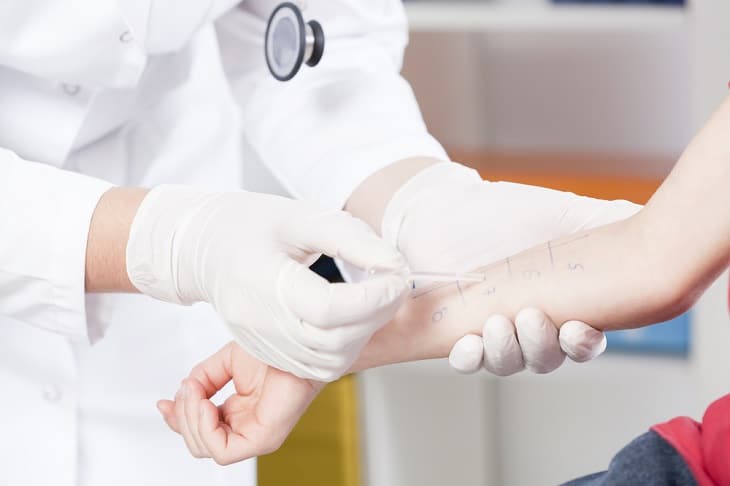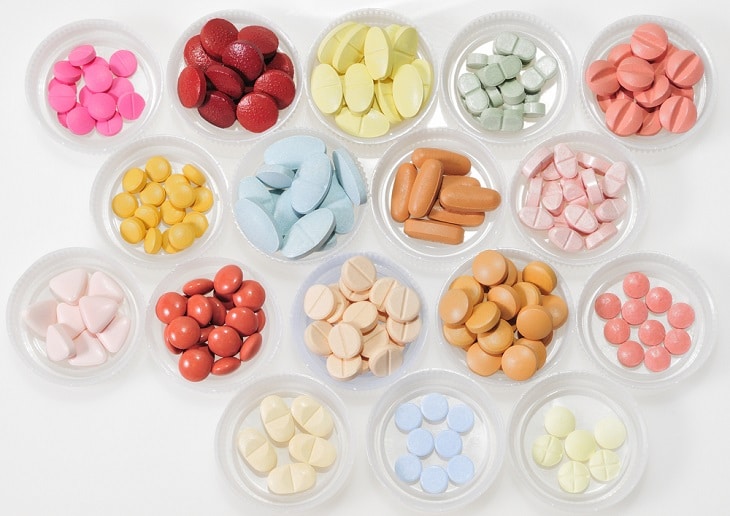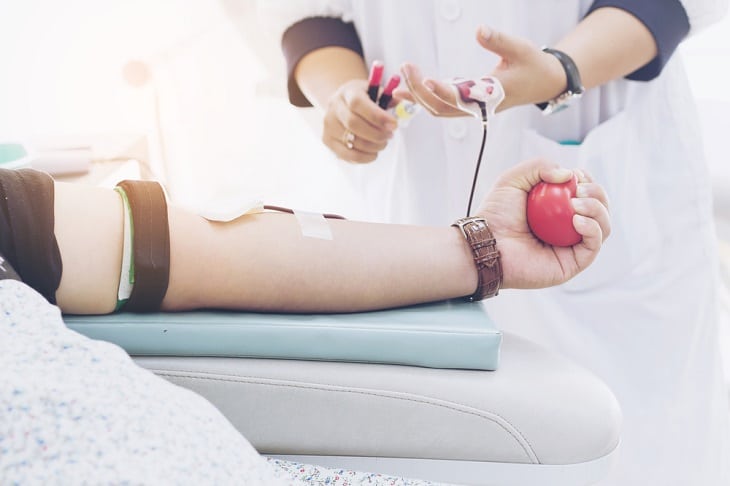Jasmine Birtles
Your money-making expert. Financial journalist, TV and radio personality.

Taking part in paid clinical trials can be a way to make a lot of money in a short amount of time, but there are serious potential downsides so be very clear about those if you go in for this.
Depending on what kind of trial you take part in, how invasive the trials are, and how long they take, you can earn anything from £100 to about £5,000. If you’re impressed by the £5,000 figure, though, ask yourself, how much could this ‘treatment’ be harming my body for them to pay me so much money?
Here’s our guide to taking part in paid clinical trials for money the safe way.

There are various types of clinical trials for money that you may be able to partake in. Drug trials are probably the most common as every new drug has to go through testing before it can be widely used.
As a health volunteer you would be involved in Phase One testing. Before this, phase drugs are tested in laboratories and on animals, but Phase One is when the drug is first administered to humans. The aim is to measure what happens to the drug once it’s in the human body until the point it’s excreted.
This may well involve staying in free accommodation for a period of days where food and entertainment are usually provided for free. Although this type of testing is closely monitored and rarely causes serious problems, there is always the risk in being the first human to trial a drug and we shall say more on this later. Just be aware of what you are getting into before you sign up.
In fact, before you look into any potential drug trials for yourself, you should remind yourself about this trial where things went horribly wrong for some of the human testers. Also there is a helpful report on the BBC website about clinical trials today here.
Other kinds of testing are less common so they will be harder to find and will require being at the right place at the right time, but they also don’t carry the same risks as drug trials. Such tests include psychology tests, sleep deprivation studies and diet and nutritional studies.
There are a wide range of medical trials out there and for each one the conditions for who can take part vary. Some, for example, require healthy non-smoking adults with no previous medical conditions, others require that the women who take part are past fertility so they are not harmed by the drug in any way, whilst other tests require that you suffer from a certain condition so that they can test a drug’s efficacy.
The testing company Londontrials says that if you’re healthy and aged between 18 to 75 there will probably be a test you can volunteer for. They also have special trials for people who suffer from asthma or migraines.
If you want to take part, you’re probably wondering are there paid clinical trials near me? Well, read on for a list of paid clinical trials.

The amount of money you can make depends on what trial you are taking part in, how long it goes on for and how invasive the trial will be. You can earn anything from a few hundred pounds to a few thousand pounds. For example, Trials4us do overnight trials and offer up to £120 per 24 hours you spend with them. They have experiments for people with frown lines/crows feet which pays £720 but also have experiments paying up to £1,750 for healthy volunteers.
One of the best paid clinical trials you can partake in is FluCamp, based in Whitechapel, London. They offer up to £3,750 for taking part in one of their studies. However their clinical trials last between 10-18 days, involve having to contract some kind of cold, flu or respiratory virus and the treatments may not only be nasal sprays and pills, but also injections and drips. As with most clinical trial accommodation, you are provided with a room and entertainment, such as a television and games consoles. For some this might sound like the easiest way to make £3,750 they have heard of, for others it might sound like a nightmare.

As has been said, medical trials are the easiest to find when it comes to paid experiments. ClinicalTrials, a US ran database of clinical studies being carried out around the world, is a good place to start looking. It is particularly useful if you have a condition that you would like the opportunity to test drugs for because you can simply type in your condition and a location and see what results arise.
Here’s a list of paid clinical trials worth checking out, and they include:
For psychological, diet and sleep studies, it is worth contacting local universities and seeing if there are any such trials being run at the time.

If you feel uncomfortable about the idea of untested drugs, or you don’t like needles, then clinical trials probably aren’t for you. If those things don’t bother you, however, then clinical trials may be something worth considering.
There are people who question the ethics of paid clinical trials and it is understandable. Paying someone to do something they otherwise wouldn’t could be seen as exploiting the poorer among us by giving them money to put themselves through risk they would not, all things being equal, choose to subject themselves to.
That is why some clinical trials are unpaid.
However, by partaking in a clinical trial you could consider that you are volunteering to help contribute towards fighting diseases and ailments that plague thousands of people, and the payment can simply be seen as compensation for your time and inconvenience. It’s also a way of testing drugs out voluntarily rather than having them tested on animals who can’t complain or escape. Most clinics also provide reasonable accommodation, entertainment and meals. For some, then, this might sound like a great way to make quick, easy money whilst contributing towards a satisfying cause.
There are, however, legitimate questions to be raised about safety. All clinical trials are now done in the shadow of the ‘Elephant Man trial’ in 2006, so named because one of the volunteer’s head swelled up so much that it was comparable to the character in the 1980 John Hurt film. During the trial six healthy young men were injected with the drug TGN1412, which had not caused problems during animal testing, but caused a serious reaction in all the volunteers, leaving them in need of treatment for organ failure. One of those taking part lost his fingers and toes, and all were told they would likely develop auto-immune diseases or cancer as a result of the drug.
Since then action has been taken to make trials safer. For example, one of the problems during the Elephant Man trial was apparently that the drug was given to all volunteers at the same time, whereas the injections should have been staggered to monitor the affects in each person. Now there is a greater focus on staggering and ensuring that the right dose of a drug is given to volunteers.
Nevertheless, all safety measures can do is reduce risk, it cannot guarantee against it. It should be said that the vast majority of clinical trials go ahead without problem or incident and that cases like the Elephant Man trial are exceptions to the rule. Still, it is worth bearing all this in mind when considering whether paid clinical trials are right for you. Remember that with a lot of drugs the effects don’t show for some time so even if it seems clear at the time of the test you might have symptoms much later.
So if you plan to take part in one of these trials you should do so with all the facts and your eyes wide open.

If making money taking part in a paid clinical trial doesn’t sound like your thing, there are other ways to make money in this area without having to take part in a trial yourself.
Many of the organisations mentioned above will pay you if you recommend someone who goes on to take part in one of their experiments. For example, trials4us.co.uk offer anything from £90 – £350 for recommending someone who successfully completes one of their clinical trials. Of course if you are recommending a friend it goes without saying that they should be comfortable with taking part and it is probably best if you are not ideologically opposed to the trials yourself, otherwise you may come of as a little callous!
Some of the organisations also pay for blood. Again, trials4us.co.uk offers £60 per 600 mls of blood, or pays at a proportional rate. It also offers a £5 contribution towards your travel expenses. Giving blood, thankfully, does not entail the same kind of risk as clinical trials.

I did a trial earlier this year. If you can swollow the idea of staying in a clinic for a prolonged period of time (mine was 15 days) and eating the food they feed you whether you like it or not… The money is good
I want it, let me try for money
Como me puedo comunicar
Sounds like an interesting opportunity.
I have made some money from this when i was a single man. But now i am married with a child i am a bit cautious. I can only do a trial that involves going in and coming out at the end of the day and involve say different foods and the after effects